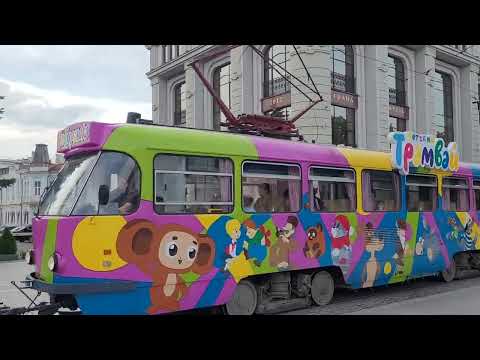
Nestled at the foothills of the majestic Caucasus Mountains in Southern Russia lies Vladikavkaz, the capital city of the Republic of North Ossetia-Alania. Known for its picturesque landscapes, rich history, and vibrant cultural tapestry, Vladikavkaz serves as a fascinating gateway to the Caucasus region, blending elements from both Europe and Asia.
#### Historical Overview
Founded in 1784 as a fortress during the Russian Empire’s expansion into the Caucasus, Vladikavkaz has played a pivotal role in the region’s history. Its name translates to “Ruler of the Caucasus,” underscoring its strategic importance. Throughout its history, it has been a melting pot of cultures and religions, including Orthodox Christians, Muslims, and Jews, all contributing to the city’s diverse heritage.
#### Geographical Significance
Vladikavkaz is strategically positioned along the Terek River and enjoys proximity to several key mountain passes that lead into Georgia. This location has not only made it an important trade route over centuries but also a cultural crossroads where different civilizations have met and influenced each other. The city offers stunning views of Mount Kazbek to the southeast and is an essential base for tourists aiming to explore the natural beauty of the Caucasus Mountains.
#### Cultural Richness
The city reflects a vibrant blend of architectural styles, from traditional Ossetian designs to Soviet modernism. Key landmarks include the majestic St. George’s Orthodox Cathedral and Mukhtarov Mosque (Sunzha Mosque), which symbolize the city’s religious diversity. Additionally, numerous statues and memorials around Vladikavkaz speak volumes about its complex past and resilient spirit.
Cultural festivals such as Alania International Music Festival attract visitors from across Russia and neighboring countries, providing insights into local traditions through music, dance, and art. The Ossetian people are known for their hospitality and take pride in showcasing their heritage through folklore performances that often accompany such gatherings.
#### Economic Life
Traditionally an industrial hub due to its strategic location and resource availability (notably metals like zinc and lead), modern-day Vladikavkaz has diversified into various sectors including manufacturing, service industries, and tourism. The development of tourism infrastructure is seen as vital for boosting local economy by leveraging natural landscapes ideal for hiking, mountain climbing, and skiing.
#### Challenges and Development
Like many regions with significant historical legacies intertwined with geographical significance in geopolitical contexts (given its proximity to volatile areas such as Chechnya), Vladikavkaz faces ongoing social-economic challenges including ethnic tensions and economic development issues. However, efforts are being made at both local government levels and by community groups to promote peace-building initiatives as well as sustainable development programs aimed at enhancing quality of life while preserving cultural heritage.
#### Conclusion
Vladikavkaz stands out not just as an administrative center but more so as a beacon of cultural integration underpinned by a rich historical canvas that dates back centuries. Whether you’re drawn by its scenic landscapes or intrigued by its layered history; whether you seek adventure in its rugged mountains or wish to unravel stories woven through generations — Vladikavkaz offers myriad experiences waiting to be explored.
For travelers seeking beyond usual destinations or researchers delving into Caucasian studies — visiting this gem provides unique insights into resilience amidst adversity while offering lessons on coexistence mirrored through everyday life in this diverse city.
